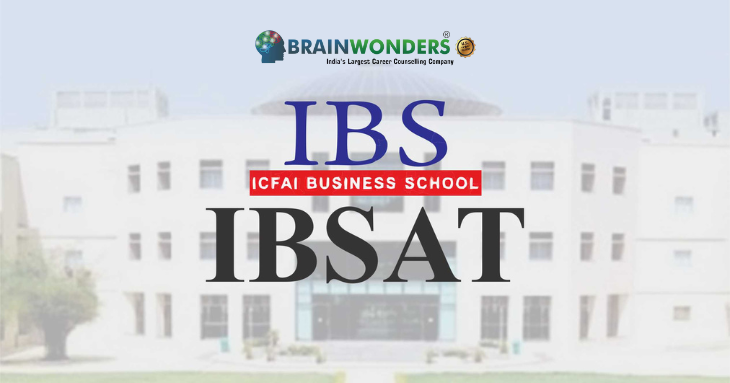

Let the best team of psychologists and career counsellors help you achieve your dream career!
Worry not, because the Brainwonders test and guidance will not only help you know it, but also follow it!
Blog
16 February,2024 | By Brainwonders
_.webp)
B.F.Sc., or Bachelor of Fisheries Sciences, is an undergraduate course spanning four years. Fisheries science involves a comprehensive exploration of all aspects related to fish cultivation. This field of study delves into areas such as fish processing, aquaculture, management of fishery resources, fishing technology, environmental considerations within fisheries, and the extension of knowledge regarding fisheries.
This program assists students in grasping the intricacies of fisheries science, encompassing the oversight of fishery operations, capturing, processing, marketing, and preservation of fish. Individuals can opt for a full-time or part-time graduate course (via correspondence or distance learning) based on their preferences. The course spans four years, divided into eight semesters, with each year comprising two semesters.
Bachelor of Fisheries Science (BFSc) is a specialized undergraduate program that focuses on fisheries, aquaculture, and related aspects. Here are the key points from the provided information:
1. Eligibility Criteria:
- Candidates need to have completed Class 12 in the Science stream.
- Subjects should include Physics, Chemistry, and Biology (PCB).
- Minimum required percentage typically ranges from 50% to 60%.
2. Admission Process:
- ICAR AIEEA (Indian Council of Agricultural Research All India Entrance Examination for Admission) is a common entrance exam for BFSc.
- Some colleges also offer direct admission based on Class 12 Board scores.
3. Course Fee:
- The average course fee for BFSc varies and falls within the range of INR 7,000 to INR 6.4 LPA.
4. Job Profiles After Graduation:
- Farm Manager
- Hatchery Manager
- Aquaculturist
- Fisheries Officer
5. Average Salary After BFSc:
- The average salary for BFSc graduates ranges between INR 2.1 LPA and INR 7.2 LPA.
This information provides a comprehensive overview of the BFSc program, including eligibility, admission process, course fees, and potential career paths with corresponding salary ranges.
B.F. Sc., Bachelor of Fisheries Science, emerges as an undergraduate offering across multiple colleges and universities. Aspiring students can embark on this academic journey after completing their 10+2 education. This program phase primarily acquaints students with the theoretical fundamentals of the subject. The course's objective revolves around familiarizing students with theories and the mechanics of fishery management. This segment is predominantly centred on theoretical concepts and practical applications.
Individuals who satisfy the following conditions meet the eligibility requirements for BFSc:
Upon completing their 10+2 education with a PCB group, candidates must clear the Common Entrance Test conducted by the Indian Council of Agricultural Research (ICAR) to secure admission into Fisheries B.F.Sc. Programs. Based on the candidates' test results and subsequent individual interviews, numerous colleges and institutes offer direct admission. Various Indian universities offering bachelor's degrees in fisheries science conduct the following entrance exams:
Enrollment into the bachelor’s degree program in fisheries, offered by various institutions and colleges, can occur through different avenues. These institutions employ diverse methods to select candidates for their bachelor’s degree courses. Beyond comprehending the program's intricacies, candidates should also acquaint themselves with the varied admission pathways to these colleges. The following are the distinct modes through which candidates can secure admission into this course:
The Central Institute of Fisheries, Nautical and Engineering Training (CIFNET) organizes the Common Entrance Test for admission into Bachelor of Fisheries Science (BFSc) and Vessel Navigator Course (VNC)/ Marine Fitter Course (MFC) programs. Managed by the Indian Government's Department of Fisheries and Animal Husbandry, CIFNET aims to produce skilled technical professionals for ocean fishing vessels and shore establishments. The entrance exam evaluates Math, Physics, Chemistry, Biology, and English skills, with 1 mark for correct answers and a -0.25 mark for incorrect ones.
Institutes and colleges offer a range of specializations within the field of fisheries. Here are several specializations available:
| Specializations |
| Aquatic Biology & Fisheries |
| Coastal Aquaculture and Marine Fishery |
| Science and Aquaculture |
| Industrial Fisheries |
| Limnology and Fisheries |
| Marine Biology and Fisheries |
| Fish Processing Technology |
| Fisheries Resource Management |
| Fish Health Management |
| Fisheries Economics and Management |
| Aquatic Environmental Science |
To excel in the BFSc course and build a successful career in Fisheries Science, candidates should possess the following traits and skills:
The Bachelor’s degree program in fishery spans four years, equipping students with foundational knowledge in fishery and related domains. Organized into eight semesters, the course facilitates comprehensive syllabus coverage. Presented below is the semester-wise syllabus:
| Semester I | Semester II | Semester III |
| Principles of Aquaculture | Inland Fisheries | Fisheries Economics |
| Statistical Methods | Food Chemistry | Aquaculture Engineering |
| Soil and Water Chemistry | Aquaculture in Reservoirs | Genetics and Breeding |
| Fundamentals of Biochemistry | Anatomy and Biology of Finfish | Fish Immunology |
| Taxonomy of Shellfish | Physical Education, First Aid & Yoga Practices | Ornamental Fish Production and Management |
| Fish in Nutrition | Information and Communication Technology | Aquatic Ecology, Biodiversity and Disaster |
| Meteorology, Climatology and Geography | Limnology | Freezing Technology |
| Swimming | Marine Biology | Fish Oceanography |
| Fundamentals of Microbiology | Freshwater Aquaculture | Physiology of Finfish and Shellfish |
| Semester IV | Semester V | Semester VI |
| Extension Education in Fisheries | Aquatic Ecology and Biodiversity | Financing and Marketing Management in Fisheries |
| Fisheries Administration and Legislation | Navigation and Seamanship | Entrepreneurship Development and Communication Skills |
| Fishing Craft and Gear Technology | Marine Fisheries | Fishery Genetics and Breeding |
| Coastal Aquaculture and Mariculture | Finfish Breeding and Hatchery Management | Fish Microbiology and Quality Assurance |
| Aquaculture Engineering | Shellfish Breeding and Hatchery Management | Fish Population Dynamics and Stock Assessment |
| Canning and Fish Packaging Technology | Diseases and Management | Aquatic Pollution and Coastal Zone Management |
| Physiology of Finfish and Shellfish | Disaster Management in Fisheries | Biotechnology & Bioinformatics in Fisheries |
| Ornamental Fish Production and Management | - | Fish Products and Byproducts Technology |
Graduates can embark on their job search journey after completing a bachelor’s degree in fisheries management. The salary prospects in this field are contingent upon the chosen specializations. Both government and private sectors offer employment opportunities for individuals with a bachelor’s degree in fisheries management.
In the private sector, entry-level salaries typically range from Rs. 2.5 lakhs to three lakhs per annum. In contrast, government sector positions offer starting salaries ranging from three to five lakhs annually. Variations in candidate salaries may arise based on geographical location, experience, and the specific field of specialization pursued.
Upon completing a bachelor’s degree in fishery, graduates have several avenues to consider. The primary option is pursuing further education, such as a master's degree, to expand job opportunities and enhance earning potential. A master's degree in fishery equips candidates for higher-level roles in the fishing industry's public and private sectors.
The second option entails seeking employment in the field. Graduates can explore job openings in diverse settings, including research institutes, nationalized banks, fish farms, fish breeding centres, fish processing and marketing firms, food departments, fish disease diagnostic centres, and more. Additionally, candidates have the option to establish their independent fisheries-related businesses.
| Job Profiles | Job Description | Average Annual Salary (in INR) |
| Aquaculture Specialist | Manages fish farms, focusing on breeding, feeding, and growth. | 3,00,000 - 5,00,000 |
| Fisheries Biologist | Studies aquatic ecosystems and fish populations. | 2,50,000 - 4,50,000 |
| Fishery Extension Officer | Educates and supports fishing communities in sustainable practices. | 2,00,000 - 4,00,000 |
| Fish Processing Manager | Oversees the processing and packaging of fish products. | 3,50,000 - 6,00,000 |
| Research Scientist | Conducts research to improve fishery practices and conservation. | 4,00,000 - 7,00,000 |
| Fisheries Consultant | Provides expert advice on fisheries management and sustainability. | 3,50,000 - 6,50,000 |
| Aquatic Environmentalist | Focuses on preserving aquatic ecosystems and biodiversity. | 2,50,000 - 5,00,000 |
If you're unsure if a Bachelor of Performing Arts is the right choice for you, let our team of expert counsellors at Brainwonders help you find the perfect career path. We understand that making such an important decision can be confusing, which is why we offer comprehensive assessments and personalised advice to ensure we provide you with the best possible direction and opportunity. With our assistance, you'll gain clarity on your future prospects and unlock the potential to achieve your long-term ambitions.Choosing the right career stream is crucial to a fulfilling and prosperous future.
Frequently Asked Questions
1. What is the salary of BFSc?
Answer: The salary for BFSc graduates can vary based on factors like specialization, job role, location, and sector. In the private sector, starting salaries can range from Rs. 2.5 lakhs to 3 lakhs per year, while government sector positions may offer initial salaries of Rs. 3 to 5 lakhs per year.
2. Is BFSc a good course?
Answer: BFSc is a good course for individuals interested in fisheries science and aquatic ecosystems. It offers diverse career opportunities in both public and private sectors, including aquaculture, research, conservation, and management.
3. What is the qualification for BFSc?
Answer: The qualification for BFSc typically requires candidates to have completed their 10+2 education with a Science stream. They should have studied Biology or Agriculture as mandatory subjects. Entrance exams may be required for admission into BFSc programs.
4. Is BFSc a good course in India?
Answer: Yes, BFSc is a reputable course in India as it equips students with knowledge in fisheries science, leading to various career prospects in a growing industry. Graduates can work in research, aquaculture, fishery management, and more.
5. Are fisheries under NEET?
Answer: No, fisheries science is not directly covered by the NEET (National Eligibility cum Entrance Test) in India. Admissions to BFSc programs involve separate entrance exams from relevant institutes or organizations.
6. What is the scope of a B.Sc Fisheries?
Answer: The scope of B.Sc. Fisheries are vast. Graduates can work in fisheries management, aquaculture, research, fisheries extension, fish processing, and conservation. They can also pursue higher education, including master's and doctoral degrees, to enhance their expertise and job prospects in this field.
Let the best team of psychologists and career counsellors help you achieve your dream career!



,_Syllabus,_Pattern,_Old_Question_Papers.png)

